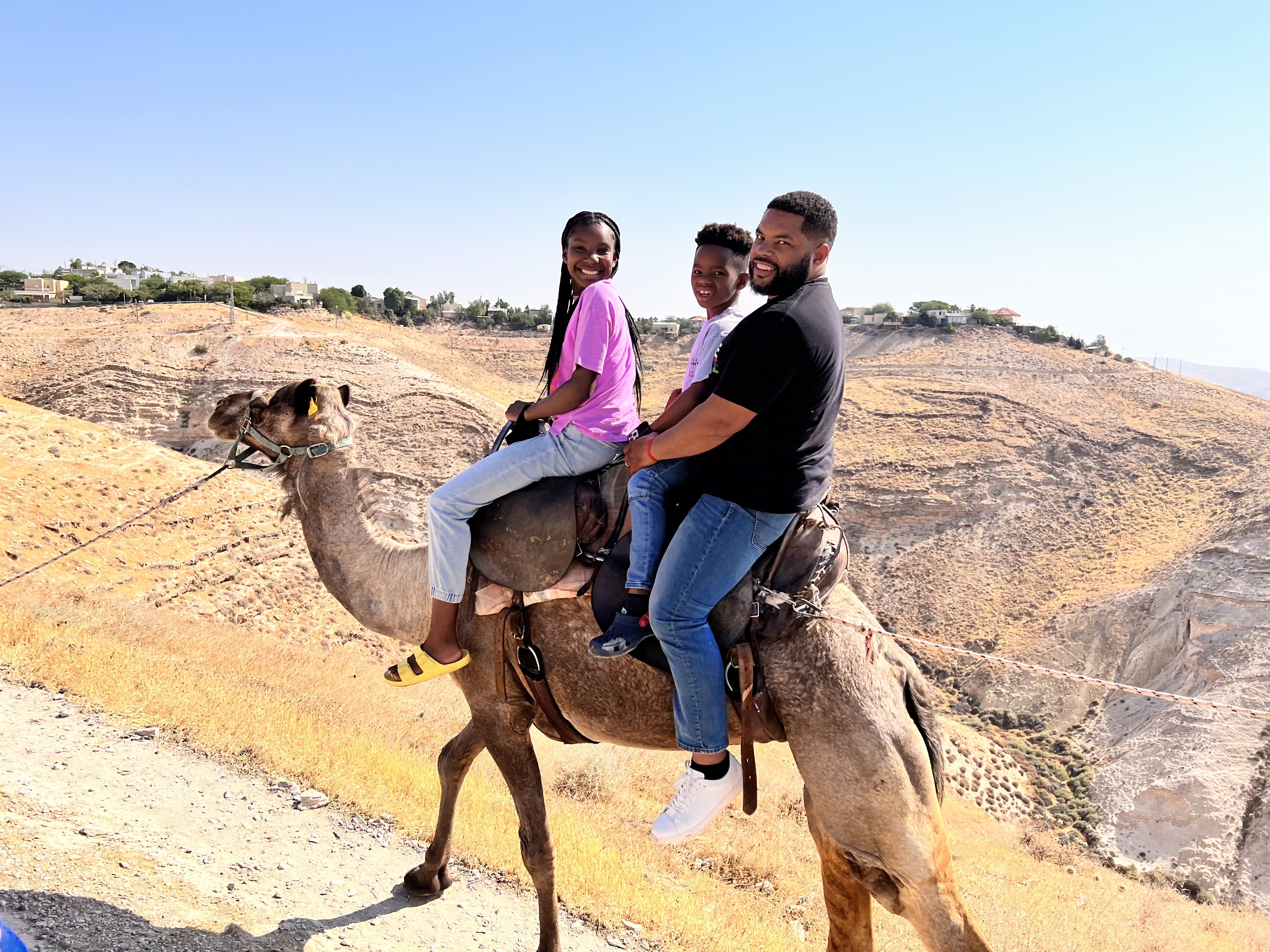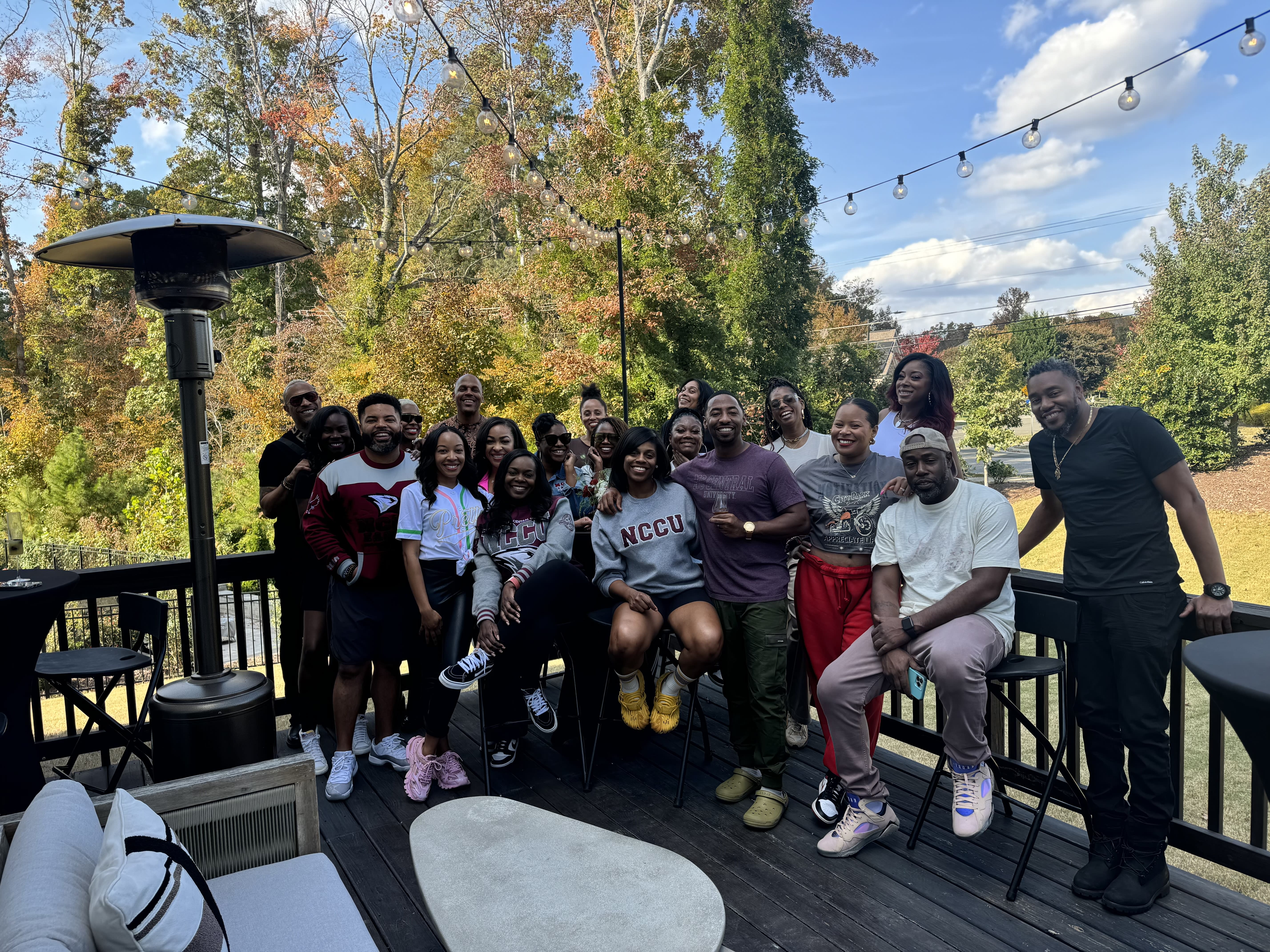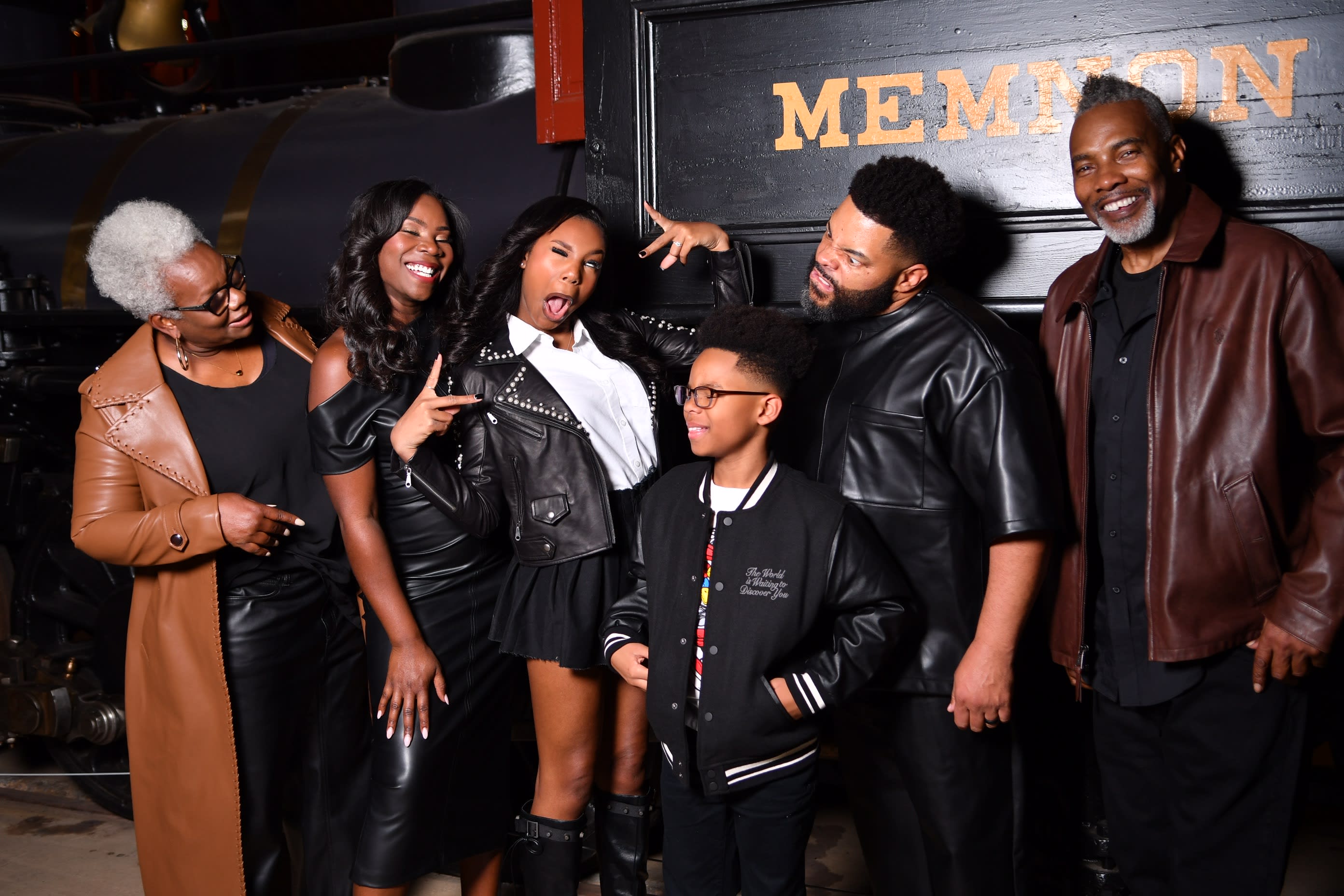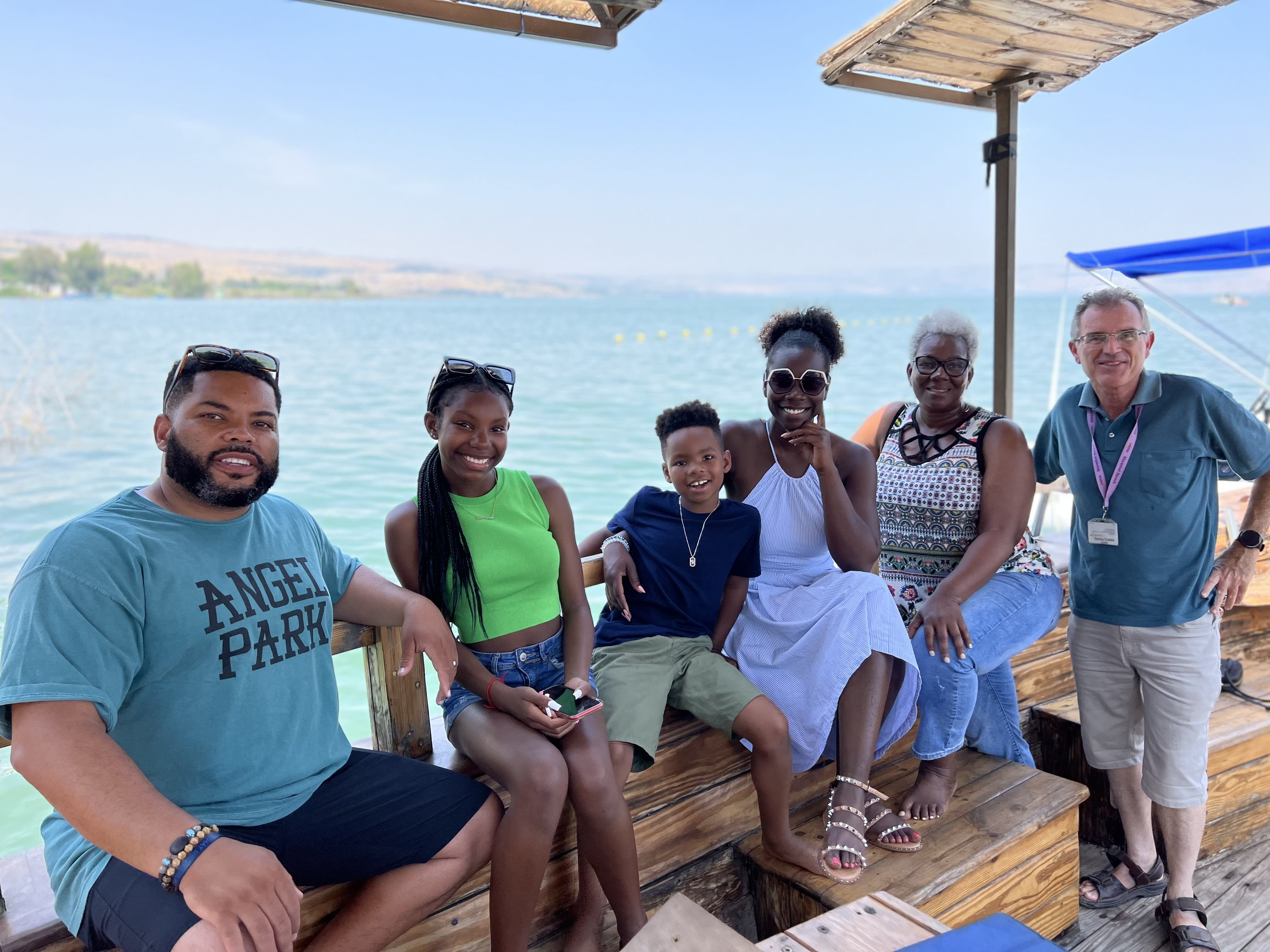
Image courtesy of Juan Webster
Some people were made for certain roles. Juan Webster, Montage International’s Senior Corporate Director of Social Impact, is one such person. In many ways, hospitality was ingrained within him from an early age. He has his grandmother, with whom he lived throughout most of his childhood, to thank.
“She introduced me to hospitality on a whole other level,” he shared recently. “I just didn't know it was hospitality.”
She was the first person to show up when someone in the community passed away. She cooked, she cleaned, she did everything she could to support the bereaved family — and she took Juan with her. Her hospitality showed up in joyful moments, too. As the head of the family reunion committee, she was responsible for bringing all the generations together every few years. She had events lined up and got people excited about coming together. She excelled at the art of gathering, something Juan would eventually take with him as he progressed in his career.
On the weekends, Juan went to work with his mother, who just so happened to work at a hotel. The conditions there were safer than the ones at home. He didn’t know it at the time, but he was beginning to collect the stories and experiences that would eventually define his life path.
Doing his thing

Image courtesy of Juan Webster
Juan graduated from the University of North Carolina at Chapel Hill with a degree in sociology. He subsequently did an emergency-room internship at UNC Hospitals, caught the “curiosity bug,” and applied to nursing school. While in school, he needed a job — specifically one with benefits, which his then girlfriend (and now wife), urged him to find. Juan’s best friend recognized his “natural abilities and skills for service and making people feel special,” and suggested he try hospitality. Juan took a part-time role at a local hotel. During his first days on the job, an ice storm (“10 times worse in the South”) hit the state. Everything was closed. The hotel asked him to stay.
“This is better than my conditions at home,” Juan remembered thinking. “So yeah, I'm in. I literally worked for like 10 days.”
He helped the housekeeping team, shoveled snow, worked the breakfast bar. After the 10-day sprint, he received effusive thank-you letters and emails from guests.
“I didn't even know what I did,” he said. “But it was rewarding. This was fun. This was easy. I didn't feel like it was work. I felt like I was doing my thing.”
This “crash-course education in hospitality” set Juan on the path he was made for. He enrolled in North Carolina Central University’s hospitality program. It was there he met Dr. Beverly Bryant, the “godmother of hospitality, especially to Black and minority students,” Juan said.

Image courtesy of Sagamore Pendry Baltimore
Dr. Bryant, now in her 80s and still making waves, saw something in Juan. She recognized his natural ability to connect with people. She knew he could compete with the other top hospitality schools — the Cornells, the UNLVs — and that he could set an example for others who looked like him, proving that they, too, could succeed.“She was the first person to show me how to network and work a room,” Juan said. “She took me to my first etiquette series, where I learned how to properly dine and eat, and not just be a part of the conversation, but really execute and be confident.”
(In fact, Juan would eventually build upon these etiquette series and introduce a similar program where 100 local youth savor a five-course meal, in the company of an etiquette coach, at a Pendry hotel.)
Dr. Bryant took Juan to conferences and career fairs. She taught him how to apply and earn scholarships. She pushed him to be “more than a trailblazer.” She exposed him to high-powered people. She made it so “ that passion button just took off.” At one conference, Juan, then in his 20s, was just about to leave his hotel room for a night out, when Dr. Bryant stopped him.
“ Whatever it is you think you're about to go enjoy tonight, you have so much more to risk,” she told him.
Juan didn’t go out that night.
A new definition of luxury

Image courtesy of Juan Webster
Throughout his hospitality career, Juan zeroed in on community. As he continued to level up, he wanted to bring people with him.
“It's so important that we don't wait on the community to come to us,” Juan said. “We make it a priority to engage with the community.”
That’s where social impact comes in. Although he currently has “social impact” in his title, it’s been his driving force all along, whether he was in operations, a general manager or a director. Today, he’s designing destination-specific, immersive experiences at every Montage hotel. He’s collaborating with the Native American community in Montana, the Hispanic community in Chicago, the LGBTQ+ community in West Hollywood and the African American community in Washington, DC.
“Sometimes we go to all these great hotels, and they're amazing, but do we get to take a slice of it with us?” he asked. “Social impact, at the core, is about creating opportunities for all people to thrive and building a culture where we can each be celebrated and not just tolerated.”
For instance, at Pendry Washington DC - The Wharf, guests can sign up for a private tour of HR Records, one of the country’s oldest record shops. The owner takes you around and gives you an education in DC history through music. At the end, you go home with two vinyls of your choosing. Proceeds from this experience go toward the SEED Public Charter School of Washington DC, and fund the youth music program. This is the type of holistic strategy Juan prioritizes. The hotels, their neighborhoods and local businesses are all part of a dynamic ecosystem. Every hotel, especially luxury ones, have a responsibility to nurture that ecosystem.
To Juan, luxury is a feeling. It’s about how we make others feel, a point of view exemplified by all of the hotels in Montage International’s portfolio (namely because of people like Juan).

Image courtesy of Juan Webster
“ It's not about how you look. It's not about how much money you have. It's not about what you have access to,” Juan said. “Luxury, at its core, is about making people feel really special in a meaningful way. And it has to be intentional and thoughtful and authentic.”
For his grandmother’s 80th birthday, Juan set her and his grandfather up in the Sagamore Baltimore, where he was the general manager at the time. The sleek, effortlessly cool property was different from the humble motels of his childhood, but the spirit was still there.
“I watched her and my grandfather sit back and like, ‘I can't believe you're doing this,’” Juan recalled. “And I was able to share with them, ‘I'm only doing this because of you. I'm only able to do this because of the seeds you planted, because of the lessons you taught, because of the sacrifices you made.’”
It was one of his proudest moments. Toward the end of their stay, his grandfather remarked upon the abundance of snacks Juan had laid out for them. It was simply too much to eat, so his grandfather invited the rest of his grandkids to indulge in the complimentary spoils. What he did not realize was that he had emptied the entirety of the very non-complimentary hotel mini bar. It didn’t matter. Juan footed the $370 bill at check-out. Luxury is how you make others feel, after all.
“It was the proudest bill I ever paid,” he said.
